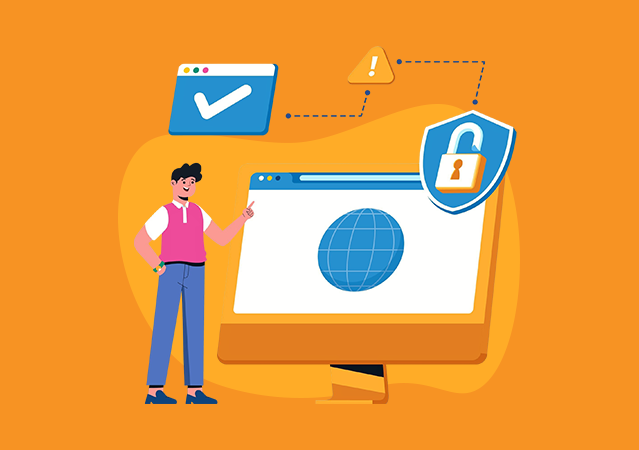In today’s interconnected world, freelance professionals face a growing array of cyber threats. From phishing emails to ransomware, bad actors are constantly innovating new ways to infiltrate networks, steal data, and disrupt operations. As a freelancer, your livelihood depends on the trust of your clients—and nothing erodes trust faster than a security breach. In this comprehensive guide, we’ll explore practical steps you can take to safeguard your freelance business, leveraging best practices and, when necessary, tapping into specialized talent. Whether you’re looking to Hire Freelancer Computer Security, Hire Freelancer Computer Vision Experts, or Hire Freelancer Computer Scientists, Paperub has you covered.
1. Perform a Security Audit
Before implementing defenses, it’s crucial to understand your current risk profile. Conduct a thorough security audit by:
-
Mapping your digital assets: List all devices, software tools, and data repositories (e.g., project files, client databases, and email accounts).
-
Identifying vulnerabilities: Check for outdated software, weak passwords, open ports, and unencrypted storage.
-
Assessing workflows: Document how data flows between devices, cloud services, and clients.
If you lack the expertise to perform a detailed audit, consider hiring a freelancer. On Paperub, you can Hire Freelancer Computer Security experts who specialize in vulnerability assessments and penetration testing to give you a clear, actionable report.
2. Secure Your Devices and Network
Many breaches originate from compromised devices or insecure networks. Strengthen your perimeter with these steps:
-
Keep software up to date
Enable automatic updates for your operating system, applications, and firmware. Patching known vulnerabilities promptly reduces your attack surface dramatically. -
Use a reputable antivirus and endpoint protection
Modern security suites offer real-time monitoring, behavior-based threat detection, and automated remediation. This is particularly important if you handle sensitive client data. -
Encrypt your hard drives
Full-disk encryption ensures that, in the event of device theft or loss, attackers cannot access your data without your encryption key. -
Implement a secure Wi-Fi setup
Use strong WPA3 encryption, disable WPS, and create a separate guest network for visitors. Avoid public Wi-Fi when possible, and if you must use it, always tunnel through a Virtual Private Network (VPN).
3. Strengthen Authentication
Credentials remain one of the weakest links in cybersecurity. Bolster your defenses with strong authentication measures:
-
Adopt multi-factor authentication (MFA)
Wherever possible, enable MFA—ideally using hardware tokens (e.g., YubiKey) or authenticator apps rather than SMS, which can be susceptible to SIM-swapping. -
Use a password manager
Generate and store complex, unique passwords for every account. Password managers also help you fill credentials securely and alert you to reused or compromised passwords. -
Regularly rotate credentials
Change passwords at least quarterly, and immediately if you suspect any compromise. For critical business or financial accounts, consider monthly rotations.
4. Protect Your Communications
Freelancers frequently collaborate with clients via email, instant messaging, and video calls. Secure these touchpoints by:
-
Utilizing encrypted email services
Services like ProtonMail or G Suite’s “confidential mode” provide end-to-end encryption for sensitive discussions. -
Implementing secure file sharing
Use platforms such as Dropbox Business, Google Drive with advanced settings, or self-hosted Nextcloud instances configured with SSL/TLS. -
Choosing secure collaboration tools
Zoom, Microsoft Teams, and Slack offer enterprise-grade security options—ensure you’re on a paid tier to access features like waiting rooms, enforced passwords, and data loss prevention (DLP).
5. Backup and Recovery Planning
Even with robust preventive measures, no system is invulnerable. Prepare for the worst by:
-
Setting up automated backups
Adopt the 3-2-1 strategy: three copies of your data, on two different media, with one copy stored offsite or in the cloud. -
Regularly testing restores
Ensure you can recover critical files and systems quickly by periodically running full recovery drills. -
Maintaining incident response procedures
Document your steps for containment, eradication, and recovery. Know whom to contact—legal counsel, insurance, or forensic experts—if a serious breach occurs.
6. Stay Informed and Trained
Cybersecurity is an ever-evolving field. Keep your knowledge and skills sharp:
-
Follow security news
Subscribe to reputable blogs (e.g., Krebs on Security, The Hacker News) to stay abreast of emerging threats and mitigation strategies. -
Invest in ongoing education
Platforms like Udemy, Coursera, and SANS Institute offer courses on topics from ethical hacking to advanced malware analysis. -
Engage with professional communities
Join forums, attend webinars, and participate in local meetups or virtual conferences to exchange insights with peers.
If you need tailored training material or hands-on guidance, you might choose to Hire Freelancer Computer Scientists through Paperub, ensuring instruction is aligned with the latest academic and practical research.
7. Leverage Specialized Expertise
Not every freelancer is a jack-of-all-trades. Depending on your project’s needs, consider tapping into niche skill sets:
-
Computer Security Specialists
When you need in-depth audits, threat hunting, or incident response, Hire Freelancer Computer Security professionals who can deploy advanced tools like SIEMs and EDR platforms. -
Computer Vision Experts
If your freelance work involves AI-driven video or image analysis, secure your custom models and inference pipelines by Hiring Freelancer Computer Vision Experts. They can help you implement model hardening, secure API endpoints, and privacy-preserving techniques. -
Computer Scientists
For algorithmic consulting, data structure optimization, or novel system design, a seasoned Freelancer Computer Scientist can bolster both performance and security, ensuring your solutions are robust against adversarial attacks.
All of these specialized professionals are readily available on Paperub, allowing you to scale your security measures precisely to your business needs.
8. Legal and Insurance Considerations
Protect your freelance business from a financial standpoint by:
-
Drafting clear contracts
Include clauses on data handling, breach notification timelines, and liability limitations. Engage a legal professional if necessary. -
Obtaining cyber liability insurance
Policies can cover costs associated with breach response, forensic investigations, and even ransomware payments (where legally permissible). -
Maintaining compliance
If you handle health data (HIPAA), payment information (PCI-DSS), or personal data of EU citizens (GDPR), ensure your processes meet regulatory requirements to avoid hefty fines.
Conclusion
Cybersecurity may seem daunting, but with a structured approach you can significantly reduce risk and maintain client trust. Start with a security audit, secure your devices and communications, adopt strong authentication, and prepare for incidents with robust backup and recovery plans. Stay informed, engage in continuous training, and don’t hesitate to Hire Freelancer Computer Security, Hire Freelancer Computer Vision Experts, or Hire Freelancer Computer Scientists on Paperub for specialized needs. By integrating these practices into your daily routine, you’ll build a resilient freelance operation that’s ready to withstand the ever-changing threat landscape.
Trending Articles
World-class articles, delivered weekly.
Django Developers
Java Developers
AWS Developers
Machine Learning Engineers
Data Scrapers
Node.js Developers & Programmers
C++ Programmers & Developers
Xero Developer
C# Developers & Programmers
Georgia, GA Python Developers
NC Python Developers
Mississippi, MS Python Developers
Tennessee, TN Python Developers
Colorado, CO Python Developers
Alabama, AL Python Developers
Alabama, AL Python Developers
Michigan, MI Python Developers
New Jersey, NJ Python Developers
Django Jobs
Web Data Scraping Jobs
Node.js Jobs
C++ Developer Jobs
API Jobs
C# Programming Jobs
TensorFlow Jobs
TensorFlow Jobs
TensorFlow Jobs
Data Analysis and Reporting Ser...
Web Programming & Development Se...
Website Builders & CMS Software Services
Join the Paperub® community

